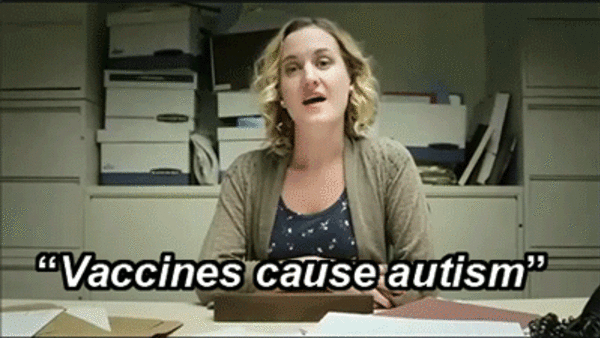11 Vaccine Myths That Just Refuse To Die: Debunked
9. Myth: No Studies Are Conducted On Vaccines

Show an anti-vaxxer a high quality randomly controlled study showing no link between vaccinations and unrelated illnesses, and they’ll counter with “Well, there are no safety studies! No one has done a study among vaccinated/unvaccinated children!”
This, however, is categorically untrue.
It’s not so much that there are no studies, it’s more that they refuse to read them. The polio vaccine trials of 1954, conducted by Jonas Salk saw 623,972 schoolchildren injected with either the polio vaccine or a placebo, and more than a million others participating as observed controls, all of whom were monitored throughout the next wave of a polio outbreak. In 2011, German researchers examined health data (study linked here) and compared the occurrence of infections and allergies in vaccinated and unvaccinated children and adolescents (Spoiler: The unvaccinated children were worse off).
Swedish and Danish researchers examined autoimmune problems to see if HPV vaccines cause them, they compared almost 300,000 young women who got HPV vaccines to over 600,000 who didn’t have the HPV vaccine. Not surprisingly, no links were found. As Allison Hagood and Thoughtscapism discuss over in their respective articles, a study into vaccinated vs. unvaccinated children would be highly unethical in modern times. No ethics board is going to give approval to stick a bunch of children in a room and give half a vaccine and half saline and expose them to an infectious disease. For this reason, researchers need to find a way around the ethical dilemma – a vaccinated group and a group that has chosen not to be vaccinated is used and retrospective studies are done without exposing them to the disease.
Vaccines are also studied against early versions of the same vaccination. This is to ensure the vaccination being developed is better at disease prevention than the product that is already being used. It makes no medical sense to use a prevention tool that is less effective at its job than a tool previously used. Vaccinations are also tested in combination with other vaccinations to ensure there are no negative interactions between the vaccinations and to ensure the vaccine schedule is safe and effective.
That's a lot of research for "no studies", and we only scratched the surface.